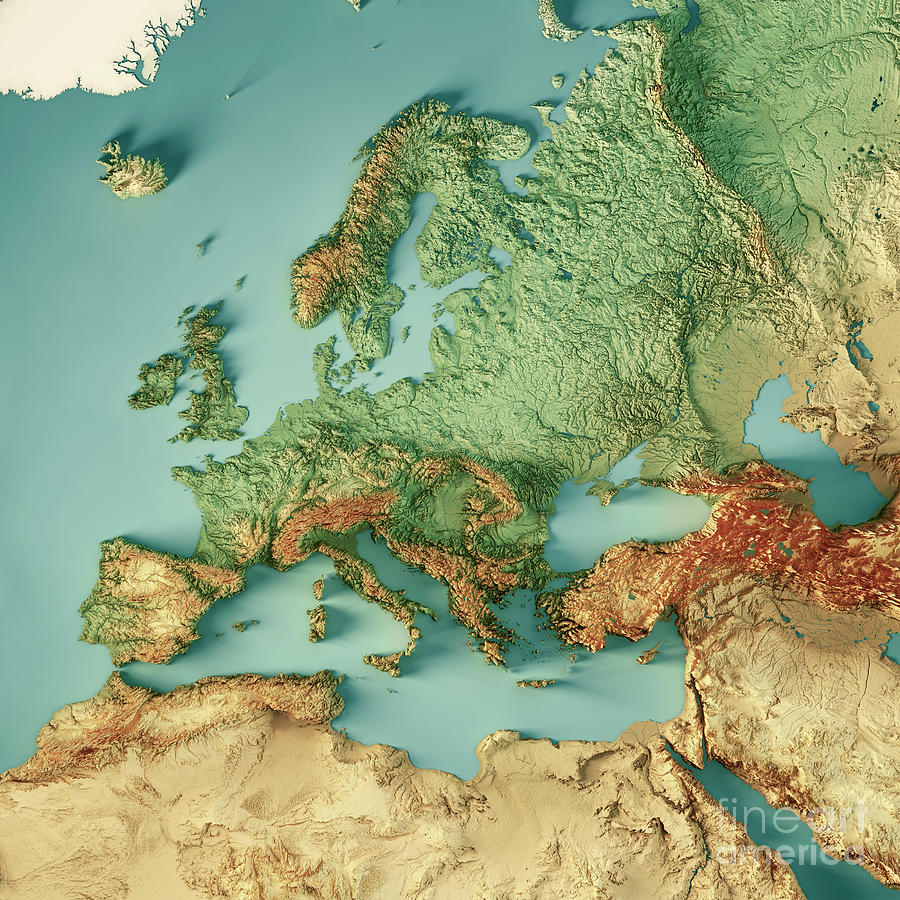I once accidentally spoke french to a waitress in Greece then apologised and said I wasn’t actually french. She went on a ten minute diatribe about how french people are the bane of her life because they refuse to speak English with her and just get louder and louder in french 😂
As a Belgian, I noticed that people usually get warmer when they learn I’m not French.
Hopefully the cliche will change over time.
It’s like the Canadians when they don’t want people to think they’re Americans. Some Americans even pretend they’re Canadian for the same reason. I’m French and I knew about these for a long time but never thought of the parallel with France/Belgium. Damn I might start using this and just say I’m Belgian haha.
Ca marche aussi avec les Suisses, mais alors ils vont penser que tu es riche ha ha
Removed by mod
I speak Dutch, so usually there’s no issue.
This would happen in Austria as well.
Seems strange to have Italy and Spain here, the English proficiency is usually at the same levels than France.
It’s not that they can’t speak English, the cliché (at least in the past) is that they refuse to speak it. Spanish people are probably worse when it comes to English proficiency these days.
Spanish people are probably worse when it comes to English proficiency these days.
Probably, people are always surprised that they have to speak Spanish even in some touristy areas.
same levels thanas France.
FTFY
(Sorry, can’t help it when it’s about language proficiency)
Thank you, grammar specialist
You’re welcome
*your
Fucksake do I have to tell you everything 😂
I thought his name is cyber egg
But Spanish and Italians will try if you approach them in English
From my travelling experience. Italians and Spanish talk to people in English. I think once an Italian was using a Spaniard to help with their poor English. But they are better than the French and a lot more willing.
I find the French (guys) if they do talk to you they are telling you some horrific story about how they fucked some bird or how they want to fuck some bird, or talk about how everyone hates them because they are French but this after doing something to make everyone hate them personally. But normally they just hang out in a big obnoxious groups.
Weirdly. All these problems I’ve had with French guys, French girls seem great.
to you they are telling you some horrific story about how they fucked some bird or how they want to fuck some bird
Wait, what? Never heard of this before
Lol spanish and italians speak shit english.
So do the English.
American English is the only correct English.
The average swede speaks better english than the average american
Swedes aren’t real.
Bro i live in sweden and im pretty sure they exist.
You live in sweden but you’re not swedish?
Interesting. Almost as if swedes don’t exist.
I moved here two weeks ago and from my experience swedish people seem to exist.
Indian English is the future english
Only valid reply.
Americans have worse English than the French.
French aren’t people.
If at all. At least in Italy, outside of tourist areas or quite often even in tourist areas, you’d have to point and wave to talk or use a translation app. Even 20 somethings barely understood any english.
I lived in spain for 4 months in a tourist spot(out of season) and they couldnt understand our english. They had shops with signs like “we speak english” but they didnt. At least italian is easier to understand with english than spanish. And then theres the french who speak perfect english but refuse to.
Indeed. This meme is funny because quite disconnected from reality
It’s not our fault that the Latin-Germanic barrier is so difficult to overcome
deleted by creator
It’s about French people sucking tremendously at English.
Source : I’m French, and they don’t even try to speak it most of the time, pretty well known. Meanwhile, I went to Germany and actually had trouble finding someone 35 and less that didn’t speak English.
I was stationed in a multi-nation camp and was astonished about how few French were able to speak basic English. Like most Asian countries had a better english vocabulary then the French.
Do they not teach English in France?
They do. But why should they care ? English really is only present during school classes or for some few words that have made it to common vocabulary.
Kids are taught, but they don’t learn (much). And since they have practical no use for english in everyday life, once they left school, they tend to forget the very little they ever learned.
Excuse me, but not all French people only bake baguettes, do they? Don’t they use the internet and other technologies? Social networks like this one for example? Don’t they become pilots, IT technicians etc. all these jobs that require English?
I guess pilot is some kind of a special thing. They really need to speak english and require some minimal level. They will learn the basic they need for the job. Also, they get constant exposure to English, which help maintain and improve it.
IT people, that’s a different story. I know “many” that don’t speak english or have such basic knowledge that they understand something different than what is actually said or written. Many job in IT will not require english, mostly a bonus. Take microsoft docs for instance, their website auto-translate to french. And even when needed, read/written is often enough. It’s also easier because we mostly learn to read & write english in schools and both language have common/similar words. Tools like google translate are also a blessing. Those 2 categories are in the upper class and I don’t really think they represent even 5% of the french people :)
The real pain point is the accent. Because we mostly learn through text (reading/writing), many will fail to identify the word pronounced because it doesn’t match how a french would read/pronounce it out loud despite knowing the word. Same goes the other way, there were a few times when someone had a hard time understanding me because I failed to pronounce a word properly : brother vs browser. Any french would read out loud those two the exact same way.
And about your point on social media I cannot say. I grew up at a time when they didn’t existed, and I don’t have youngsters around me to see their exposure to english and how they deal with it.
Afaik french officials within the EU commission tried to push french in meetings for a while after Brexit, but didnt have particular success
No, they used French as working language during their council presidency. That’s all, nothing wrong with it, but some people tried to twist it into something else.
deleted by creator
I think it’s simply two different things. They wanted to keep english as an official language, but to emphasize french as working language more iirc.
English is still an official language of the EU thanks to Ireland and Malta.
deleted by creator
https://european-union.europa.eu/principles-countries-history/country-profiles/malta_en
Official EU language(s): Maltese, English
https://european-union.europa.eu/principles-countries-history/country-profiles/ireland_en
Official EU language(s): Irish, English
deleted by creator

I live in Montreal, my experience is that French people speak great English while most Quebecers can’t ask for the bathroom in English. Of course, the French people coming here are generally open minded compared to Jean-Guy from Brossard who not only shoots you a “yes-no-toaster” when you ask him if he speaks English but also thinks it’s the funniest thing he’s ever said.
My experience with the French is that they’re happy to speak English if you say something like “Excusez-moi, perlez vous anglais?” but may pretent to not understand you if you just start in English.
Which is actually pretty fair when I think about it.
Very true. English speakers are sometimes taken aback, but it’s usually a way to show respect to the local language, and acknowledge that you are asking them a favor to speak a second language.
True. I speak French fluently but prefer English so we usually flip between the two and my experience was more about how well they speak and not really how quick they are to. I’m sure my results will vary if I actually go to France, I’ve heard horror stories from my fellow Quebecers.
Montreal is an exceptionally nice place.
I couldn’t stop in the street to look at a map without someone coming to see if I needed help. I didn’t I just needed to look at it, but in 10 seconds it took me someone would offer help.
I actually considered trying to movie there but I realised I need to also be fluent in French.
That’s up there as among the greatest cities I’ve ever been to. Sydney is my number 1 but Montreal can’t compare to the surf in Sydney so it’s not a fair comparison.
Maybe they just don’t like the québécois accent, it certainly has a very distinct sound.
Idk about the rest but Spanish people suck at English.
Italians have more or less the same level.
It is probably due to the fact that Romance languages are further from English than Germanic languages like Dutch and German.
Portuguese can speak english just fine.( I’m clearly biased since I am portuguese.)
I think a major difference is that Portugal has the original audio on every movie/show except kid shows, which improves our english accent.
Bingo, while the affinity that the local language has with English grammar and how hard foreign languages are pushed at school are contributors, this is the main one. This is why relatively uneducated people in the Netherlands and north of it are all fluent in English, and why Italians, Spanish and French are not. I Grew up with all Hollywood movie dubbed and in general Italian television in the 80s and 90s was 100% in Italian, didn’t do me any favour. It’s changing, and kids now rely less on TV and more on the internet.
Anedoctally,I’ve been bitching about the French for a very long time, like in the meme, but in my last few visits to France in the last decade or so I had no issue interacting in English everywhere (used to be fluent in French but no more)
Indeed, I added the sub/dub aspect in another comment
Portuguese is also a Latin laguange and Portuguese are much more proficient in English than Spanish, French and Italians. The main reason, imo, is that these countries dub all movies, series, etc, so they basically never listen to English nor are they interested to. In Portugal we rarely dub anything and just use subtitles. So it’s much easier for us to understand and speak english because we’re much more used to listen to it. It’s probably the same thing for the eastern countries as mentioned above. Now, why do these countries dub everything I don’t know but if they didn’t we’d probably be on the same level
Dubbing is usually a thing in countries with large populations. I assume it started when English proficiency was much lower and someone thought it was worth doing it instead of subtitles and then they just kept doing it. These days in Germany the big cinemas offer showings of some movies in the original language, in the past (well, for some movies still today) you had to go to special cinemas to see a movie in the original, so things are slowly changing.
I just commented above you on dubbing, that might interest you
Now, why do these countries dub everything I don’t know
Keeping the language alive and available to other people outside of face-to-face conversations.
One of the frustrating aspect of learning a language has a lower number of speakers (let’s say under 20 millions) and dubs everything is that you can’t really find content in that language to learn it. I learned Dutch for many years, and it’s always kind of frustrating to not being able to find that many content (e.g. Youtube video essays for instance) as Dutch speakers would naturally produce that content in English to have a broader audience.
Which makes sense for them, but then brings the question of how relevant the language is. The Netherlands are experiencing the progressive disappearance from Dutch even more as more and more people are coming to Amsterdam and other Dutch cities, and aren’t motivated to learn the language, as English is so widespread everywhere. Young Dutch speakers also tend to use more and more English in their slang.
I kind of have the same situation as I’m learning Catalan, as most of the Catalan Youtubers produce content in Castillano rather than Catalan to reach a broader audience, but then the language becomes less and less relevant. That’s one of the reasons Catalans want to keep movies dubbed in Catalan, as it is a way to keep it relevant.
I’m really torn between the two approaches. I get people who say that everyone in Europe should just use English and be done with it, but at the same time, Romance languages just hit differently. It’s part of the local culture, and I think it would be a waste to just let all of that disappear. Another example I have is someone I know who’s perfectly proficient in English (lived in an English speaking countries for many years), but still wants to raise their children in Dutch. So at the end of the day, is that language still relevant or not?
Finnish and Estonian are basically completely unrelated to English yet the native speakers of those languages are pretty good at English for the most part.
Yet for some reason, in Hungary, it’s either Hungarian or bust (guess what, it’s related to the two languages I mentioned at the beginning). So… honestly I have no idea what’s happening here.
Also, Germany and Austria speak the same native language; German, yet there are more L2 English speakers in Austria than in Germany. It’s the same as comparing France with francophone Belgium.
Finnish and Estonian are basically completely unrelated to English yet the native speakers of those languages are pretty good at English for the most part.
There is the second factor that influences how necessary English becomes to your population: the number of speakers. France, Spanish and Italian have at least 60 millions speakers, which allows them to have a dubbing industry with a significant market.
Hungary should indeed follow the same path, I don’t know what’s happening there either, maybe someone else would know more.
Also, Germany and Austria speak the same native language; German, yet there are more L2 English speakers in Austria than in Germany. It’s the same as comparing France with francophone Belgium.
As a Belgian, I always thought that as we are a country with a low population (French-speaking Belgians are around 4 millions), combined with being bordered by other languages (Dutch and German, English if you count the Channel) and having three national languages just naturally encourages people to be more open about learning at least one other language. Maybe a few of those similarities are also applicable to Austria.
I guess that makes sense.
and also because we couldn’t give less of a shit about english
Feel free to join !esp!esp@lemm.ee para hablar castillano
It doesn’t always work the same both ways, but the US Foreign Service Insititute (the government agency that teaches languages to diplomatic workers) claims that the easiest languages for native english speakers to learn are the romance languages, nordic languages, and dutch.
German is category 2.
Reasons for this are that English has a huge amount of influence from romance languages (mostly French), so a large portion of the vocabulary is similar. It tends to be that the ‘small’ words are germanic, while the ‘meaty’ or ‘meaningful’ words are romance.
Also the modern grammar is generally more similar to romance languages than German, as German retains much more of the old germanic case system.
Thank you for the insight, but I indeed meant it in the other direction.
German might be harder to learn for an English speaker, but that does not mean that English is not easier for a German speaker than a Romance language speaker.
Another example of this phenomenon (one language being easier to learn from one language, but not in the other way): Romanian. Romanian is a Romance language but with a lot of Slavic influence, so for Romanian speakers it is easy to learn Spanish or Italian, but for Spanish or Italian speakers, it is harder to learn Romanian due to the additional Slavic aspects.
Or because Italians are ignorant
English has French in it eh 1066
Italians outside of Italy maybe, or young people. Older Italians won’t talk in English even with a gun pointed to their head. Had a bus driver tell me to talk to him in English and he would answer in Italian, wth
Kun kiom bela estas Esperanto kaj ni uzas la anglan kiel barbaroj
Ne ĉiuj de ni! Estas ribeluloj ĉie.
What’s funnier is when the american cousins come to visit and all sound like old people because they learned the local language as it was before national standardization
The fun thing is that you wrote “standardization” the american way :)
Can’t agree on Spanish people here. Even the younger ones refuses or just really suck at speaking English. I talked to elderly people in Portugal in English and was not a problem. The younger people in Portugal are at least at a basic level. I am learning Spanish at the moment and I would say both languages share a lot of words. So knowing English helps me a lot understanding Spanish words.
Not sure how it’s these days, but I’ve been in rural France for a week 20 years ago as a teen and if it wasn’t for one lady speaking English I’d almost starve there. My english wasn’t particularly great, but my french was really bad and I knew it. Every single French I met there refused to acknowledge that and kept on spitting french pretty damn fast and kept it going faster every time I missed the point. Terrible, terrible experience.
How did you end up there?
School exchange trip. One week in French family, one week French kid in our family.
“My” exchange student couldn’t make two words in english, literally. In high school. How was that possible IDK. His younger brother was the same.
Probably because they lived in rural France with unskilled English teachers
It was rural, but still like 30 km to Strasbourgh, so it was not end of the world…
Alsace is known to be quite rural, 30km from Strasbourg could be far remote already.
Did they speak Alsacian by any chance? I know older people had it as a first language a few generations ago
Mince alors!
My French is rusty. So I’m not totally sure what he said not something speaking French? IDK. I live in Canada. There’s no French here.
Removed by mod
Especially not in Quebec.
They don’t (know how to) speak French.
Thanks, IDK why savent was giving me so much trouble. My brain was just unable to can.
Sacré bleu



















